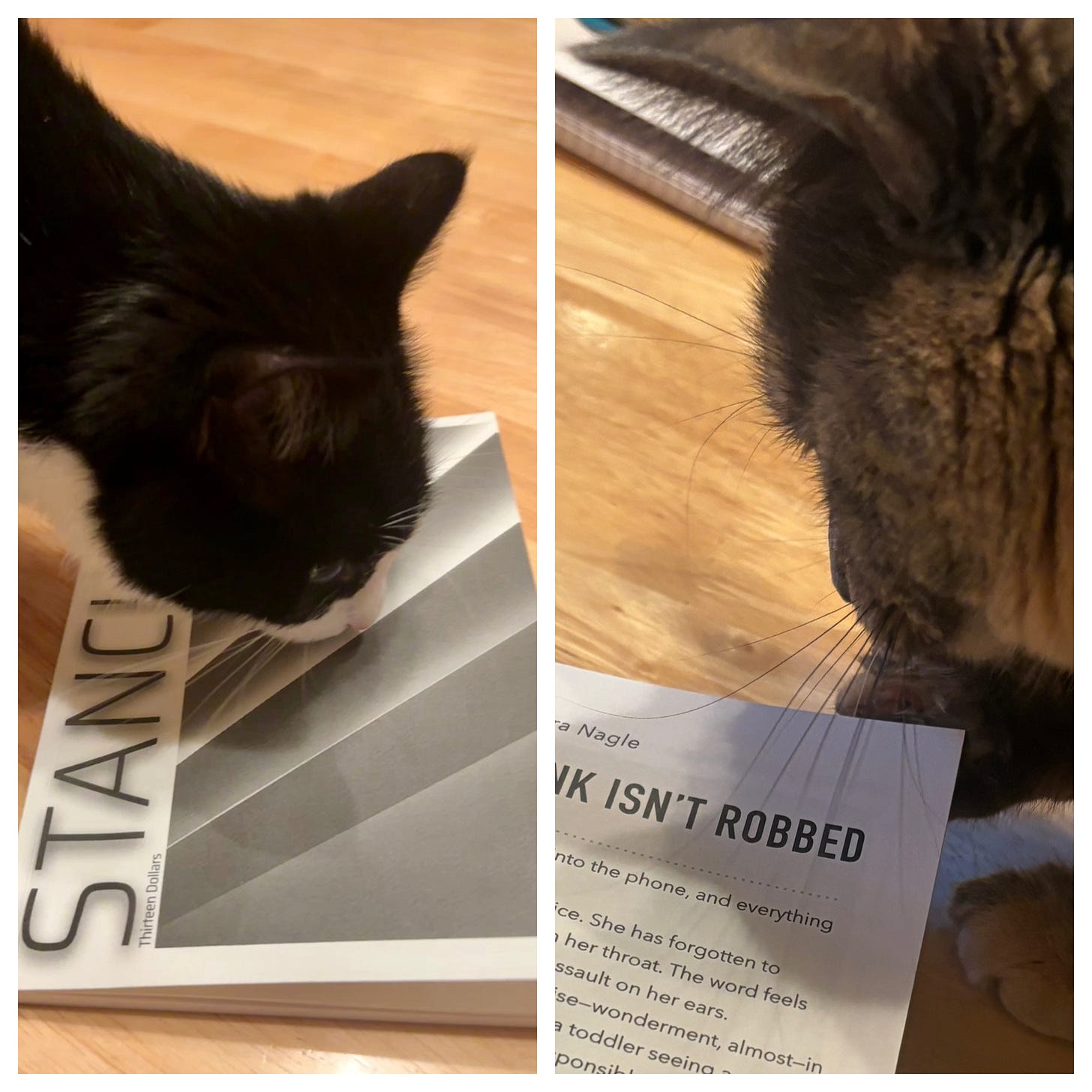It’s time for another edition of reading recommendations—and, as I promised last time around, this time the focus is on books newly available in English translation. Everything on this list is fiction, and the English editions were published in the last two years, but that’s pretty much where the commonalities end; there should be something here to suit every reader’s tastes. Read on after the list for info about an upcoming conference and, as always, cute cats.
David Diop’s Beyond the Door of No Return, translated from French by Sam Taylor, takes inspiration from the renowned eighteenth-century botanist Michel Adanson’s travels in Senegal. As the novel begins, Adanson has died, and his daughter finds his secret journal detailing a perilous journey to find and protect a young woman who escaped from a slave ship. In addition to a haunting account of the role French colonial corruption played in the transatlantic slave trade, the fictional memoir and the daughter’s efforts to honor her father’s dying wish offer a moving portrait of individual memory, grief, and regret.
In Ia Genberg’s novel The Details, translated from Swedish by Kira Josefsson, a woman reaches for a familiar book to occupy her time while she’s in bed with a fever. The book, a gift from a former girlfriend, prompts the narrator to reminisce—first about their relationship, then about the roommates, lovers, and family members who are no longer present in her life but whose habits and struggles still influence her. At 130 pages, this is a slim novel, but it is not a light, quick read; the language is rich and (as the title suggests) dense with evocative details.
Time Shelter, for which Bulgarian author Georgi Gospodinov and translator Angela Rodel shared the most recent International Booker Prize, opens with the establishment of a “clinic of the past,” where people with dementia can immerse themselves in the foods, fashions, news, and entertainment of their youth. But what happens when people begin to visit the clinic by choice—or when entire countries opt to break with the twenty-first century in hopes of reliving a period of relative peace and abundance? The narrative is (suitably enough) fragmented, consisting of vignettes and case notes presented by a narrator whose perception of both past and present by turns incisive and unreliable.
Vigdis Hjorth’s Is Mother Dead, translated from Norwegian by Charlotte Barslund, is a 350-page novel in which nothing much happens for the first hundred pages or so—and that’s exactly as it should be. After decades abroad, a middle-aged artist returns home for a retrospective of the controversial paintings that contributed to her estrangement from her mother and sister. She knows they’re still in the area, and they must have heard that she’s in town, but no one is willing to make the first move. The result is a literary character study that reads like a tense domestic thriller.
Black Foam, a novel by Eritrean author and journalist Haji Jabir translated from Arabic by Sawad Hussain and Marcia Lynx Qualey, follows a young man’s journey through the Horn of Africa and the Middle East in search of refuge. Depending on who asks, he gives his name as Dawoud, David, or Dawit. As he travels among refugee camps and tries to calculate the likelihood of finding safety in different countries, he tailors the story of his national origin, ethnicity, and religion to suit the expectations of his audiences—a tactic born of desperation and necessity, but also one that threatens his sense of identity.
In Guadalupe Nettel’s novel Still Born, translated from Spanish by Rosalind Harvey, two fiercely independent women living in Mexico City find themselves in parental roles they could not have foreseen. Laura, though adamant that she intends to remain child-free, assumes increasing responsibility for her agoraphobic neighbor’s troubled son; her best friend, Alina, gives birth to a daughter with a rare medical condition and struggles to accept her reliance on her child’s nanny and therapists. The spare, unflinching first-person narration captures Laura’s certainties, her misgivings, and her struggles to empathize with Alina’s unanticipated circumstances.
In Masatsugu Ono’s At the Edge of the Woods, translated from Japanese by Juliet Winters Carpenter, a man tries to maintain a sense of normalcy for his young son in their isolated rural home while his wife is in her hometown, preparing to give birth to their second child. Strange sounds and figures emerge from the nearby woods, and the man struggles to determine whether they are human or mythical, friendly or menacing, real beings or the product of his own paranoia. These four linked stories come together to create a haunting allegory.
Finally, Undiscovered, an autobiographical novel by Gabriela Wiener translated from Spanish by Julia Sanches, weaves together the stories of a Peruvian woman and the legacies she has inherited from her recently deceased father and their Austrian-born ancestor, who “collected” artifacts from South America in the 1870s, when, as the narrator notes, “you just had to move some dirt around to call it archaeology.”
See You at AWP?
If you’re in Kansas City next month for AWP24, let’s see each other in three dimensions! I look forward to participating in a Friday afternoon panel, I’ll be reading from my translation of Mérimée’s Songs for the Gusle on Saturday afternoon, and you can find me at the Frayed Edge Press table (T1635) for meet-and-greets after both events.
Here, Look at My Cats
The world is a mess, and you might welcome a pleasant distraction. For what it’s worth, here are my cats.

Best wishes for the new(-ish) year, and happy reading!
Laura




I cannot tell you in words as eloquent and descriptive as yours how influential your summaries are to my reading life. Thank you!